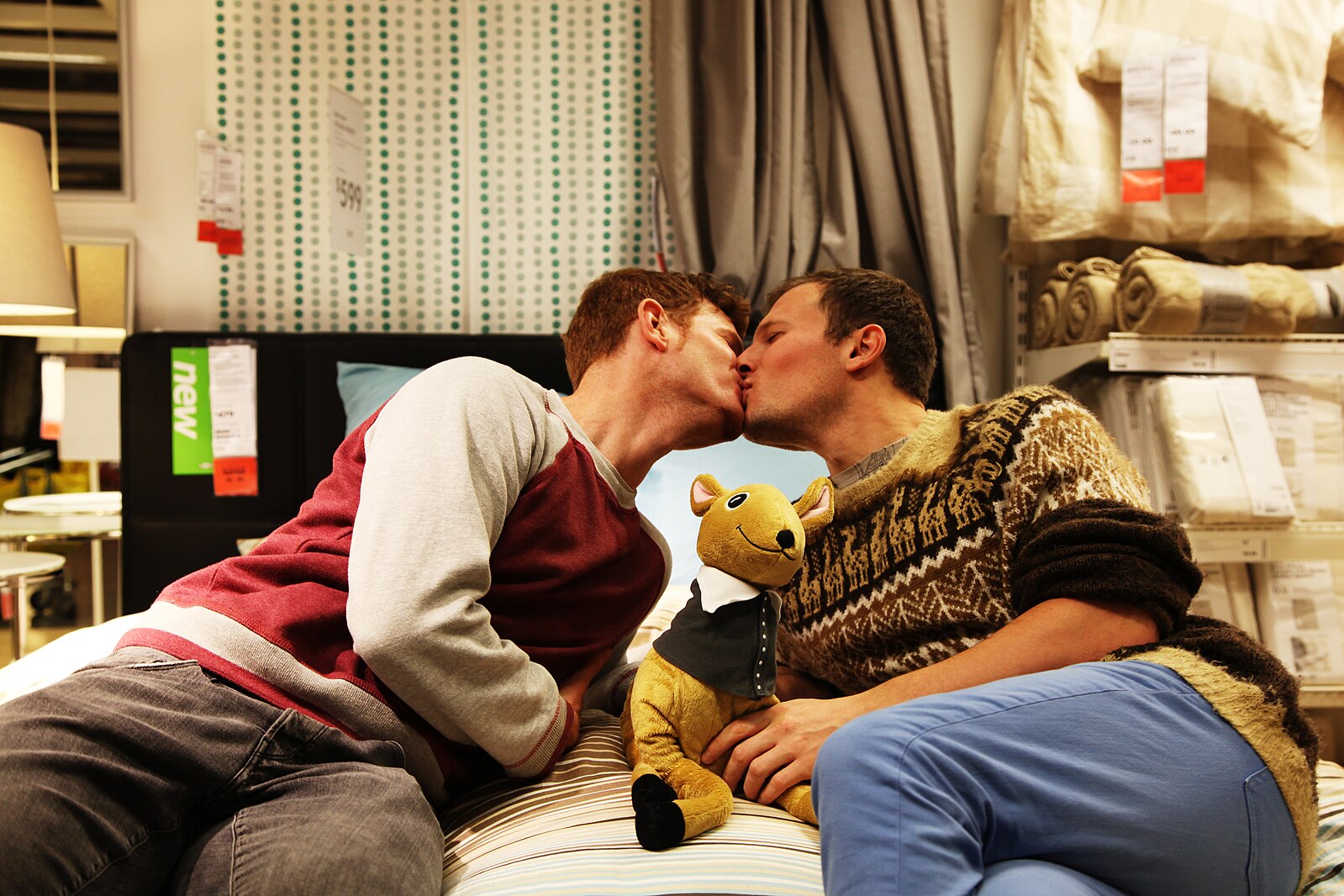Gay panic: diverging trajectories in Russia and Ukraine

Gay Russian asylum seekers protest IKEA’s decision in 2013 to delete a lesbian couple from its
Russian catalog in an IKEA in Brooklyn, New York
Jacob Sagers – Continuing our consideration of the Russian Supreme Court’s ruling marking the international gay rights movement as an “extremist organization” last Thursday, Russia has undertaken a distinctive path to its neighbors when it comes to gay rights. The ruling, which mandates six to ten years in prison for displaying pride flags, stating that gay rights are human rights or associations with homosexuality, was expected, as Russia has marginalized minority groups to maintain unity and distract from its invasion of Ukraine. Meanwhile, Ukraine has taken a diverging approach by promoting gay rights. The move to legalize same-sex civil partnerships in 2022 by Ukrainian President Volodymyr Zelenskyy is part of an appeal to join the European Union and promote closer ties to the West. Despite Ukraine’s and Russia’s intertwined histories, their responses to the gay rights movement highlight a shift in policy, culture, and future trajectories.
The way that Russia and Ukraine position themselves through actions and justifications within the global community and against each other, or geopolitical codes, has been dictated by their geographies and history. For example, significant Russian minority groups live in Eastern Ukraine due to the Soviet Union and broader history. Russia has used nationalism to label Ukraine as an enemy by viewing the territory as Russian and appealing to Russian ethnic minority groups. Russia’s geopolitical code challenged Ukrainian state autonomy and led to its invasion. However, Ukraine now labels Russia as an adversary due to the conflict and has shifted its foreign policy towards the West. Both states' actions affect how nonstate actors, or social movements, businesses, and non-governmental organizations, act and are treated within each country. The gay rights movement more specifically has benefited from the invasion of Ukraine because civil unions and LGBTQ+ rights are being promoted as part of its attempt to appeal to the West. Within Russia, the invasion has been a detriment for them as repression increases.
Non-state actors are not only affected by geopolitical codes but have their own that also alter state codes. The gay rights movement’s code advocates for LGBTQ+ rights and marriage within various countries. Success in the West over the past decade has made them expand into Eastern Europe, shown by shaping domestic policy in Ukraine. Not all are successful, however, as Russia’s appeal to nationalism through religion and conservative ideas to support a distinctive identity from the West and Ukraine has backtracked the group’s limited presence. Given how much cultural and political attitudes change, the movement could gain appeal in the future, or lose ground throughout both countries. It depends on how Russia and Ukraine want to position themselves within the global community.
Picture Credit: Photo distributed under Creative Commons Attribution-Share Alike 2.0 Generic license. Source

